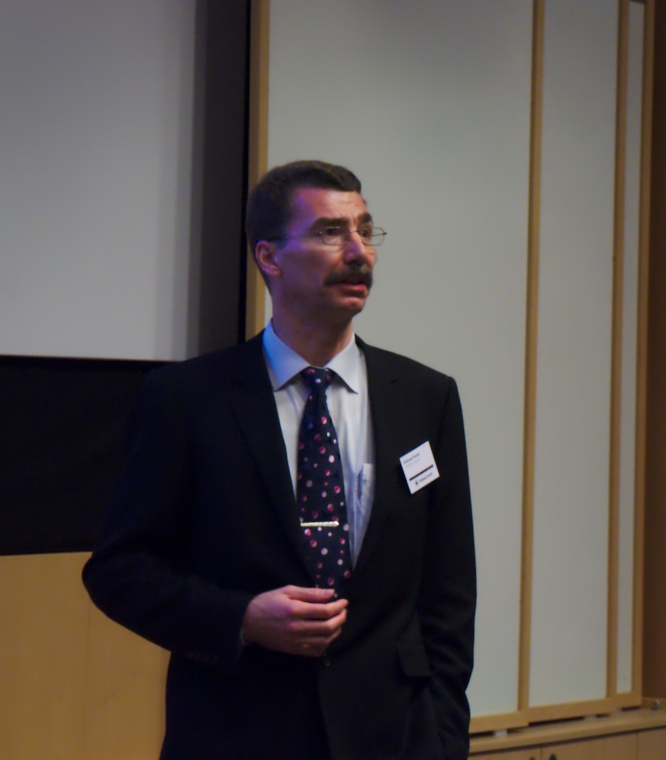
Christoph W. Kessler (german spelling: Keßler) is a professor for Computer Science at Linköping University, Sweden, where he leads the Programming Environment Laboratory's research group on compiler technology and parallel computing.
Christoph Kessler
received a PhD degree in Computer Science in 1994
from the University of Saarbrücken, Germany, and a Habilitation
degree in 2001 from the University of Trier, Germany.
In 2001 he joined Linköping university, Sweden, as associate professor
at the programming environments lab (PELAB) of the computer science
department (IDA),
and received the docent degree at Linköping University in 2002.
In 2007 he was appointed full professor at Linköping university.
His research interests include parallel programming, compiler technology, code generation, optimization algorithms, and software composition/synthesis.
He has published two books, several book chapters and more than 140 scientific papers in peer-reviewed international journals and conferences. His contributions include e.g. the OPTIMIST retargetable optimizing integrated code generator for VLIW and DSP processors, the PARAMAT approach to pattern-based automatic parallelization, the Crown scheduling technique for mapping soft-realtime data stream processing applications with moldable parallel streaming tasks for energy-efficient execution on parallel and distributed computer systems with discrete voltage and frequency scaling, the concept of performance-aware multi-variant parallel software components for context-adaptive optimized software composition, the PEPPHER component model and composition tool for heterogeneous multicore/manycore based systems, the SkePU framework for high-level portable programming of heterogeneous parallel systems using algorithmic skeletons (i.e., pattern-based generic program building blocks), and the parallel programming languages Fork and NestStep.
While serving as director of undergraduate studies 2001-2004, he also developed the StASy system for large-scale course management and staff planning in undergraduate course administration, which has been in use at the SaS division 2002-2020.
Since 2015 he serves as the head of the division for Software and Systems (SaS) at the department.